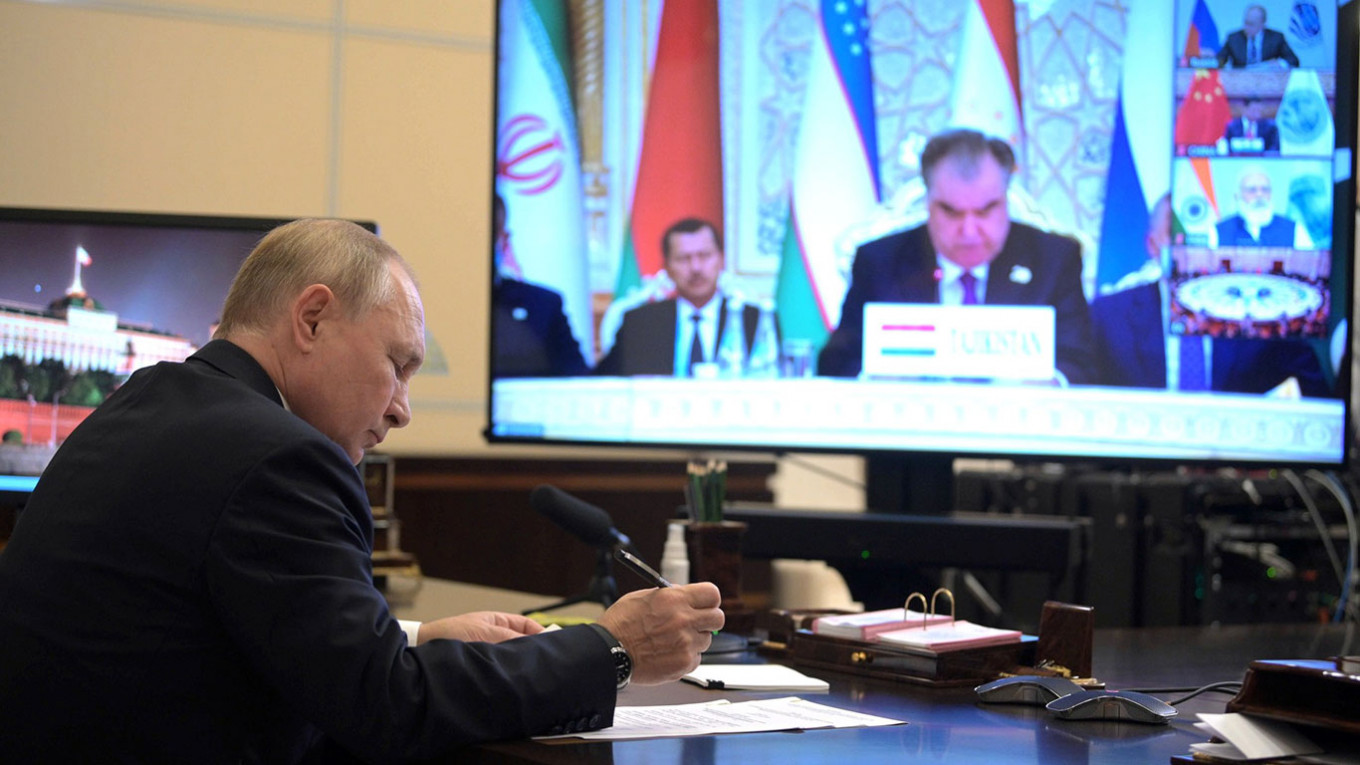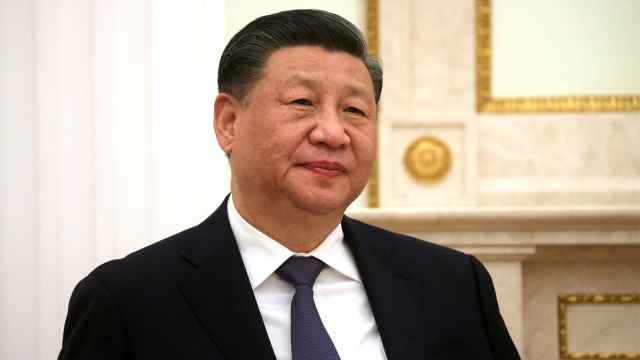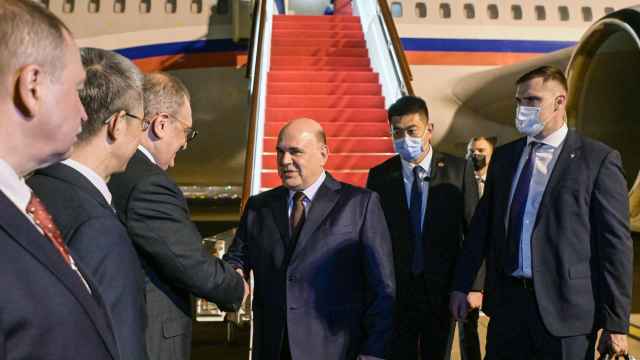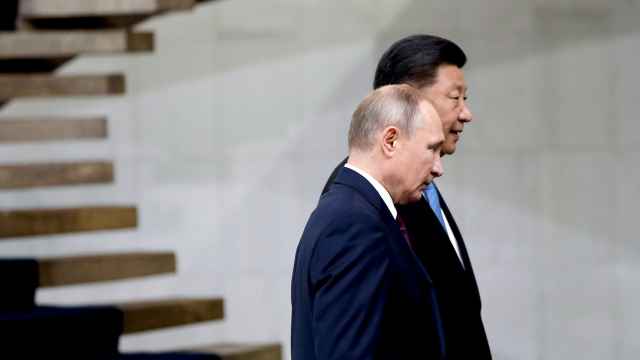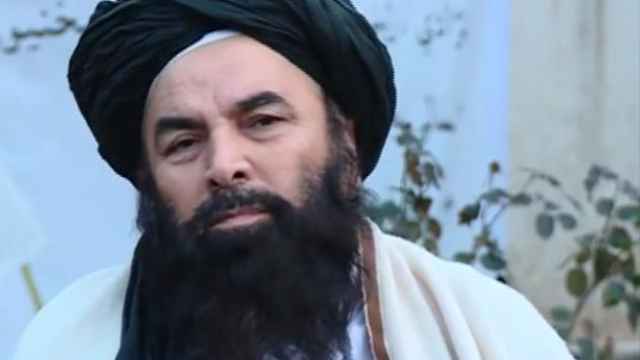Russia and China's leaders on Friday urged the new Taliban government in Afghanistan to remain peaceful to its neighbors and combat terrorism and drug trafficking.
Russian President Vladimir Putin and Chinese leader Xi Jinping spoke via video link at a summit of the Shanghai Cooperation Organization (SCO), an eight-member group that promotes itself as an antidote to Western geopolitical dominance.
Putin said the organization, holding its meeting in Tajikistan, should "use its potential" to "stimulate the new Afghan authorities" in fulfilling their promises on normalizing life and bringing security in Afghanistan.
The hasty withdrawal of U.S.-led forces had left behind "an open Pandora's box full of problems related to terrorism, drug trafficking, organized crime and, unfortunately, religious extremism," Putin said.
Partners should work with the new Afghan government, even if it was not representative, the Russian leader added.
China's Xi said it was necessary to "encourage Afghanistan to put in place a broad-based and inclusive political framework" and to "resolutely fight all forms of terrorism" and live in peace with its neighbors.
Like Putin, Xi did not attend the summit held in the Tajik capital Dushanbe in person, addressing the meeting by video link instead.
Moscow and Beijing have moved to assert themselves as key players in Central Asia, after the United States' hasty retreat from Afghanistan and the Taliban's takeover of the country.
China shares a 76-kilometer-long border with Afghanistan.
Countries allied with Russia and China were holding a series of meetings in Dushanbe this week.
'Opportunity to end war'
Summit host Tajikistan has been particularly alarmed by the Taliban's return to power, with strongman leader Emomali Rakhmon complaining of a buildup of militant groups along its 1,357-kilometer border with Afghanistan.
Rakhmon at the SCO summit called for "a reliable security belt around Afghanistan (to prevent) the potential expansion of terrorist groups."
Pakistan's Prime Minister Imran Khan, however, hailed "a rare opportunity to end 40 years of war in Afghanistan," while also urging the Taliban to ensure representation of all ethnic groups in its government.
Moscow has been cautiously optimistic on the Taliban since it came to power last month after a series of lightning offensives across Afghanistan.
Nevertheless, the Kremlin has said it is in no hurry to recognize Afghanistan's new authorities and is monitoring their fulfillment of pledges to curb drug trafficking and fight terrorism.
Other founding members of the SCO are former Soviet Central Asian states Kazakhstan, Kyrgyzstan, Kazakhstan, Tajikistan and Uzbekistan. India and Pakistan joined the bloc in 2017.
The Dushanbe summit saw SCO members back longtime observer Iran's future membership.
Iranian Foreign Minister Hossein Amir Hossein Amir-Abdollahian said joining the bloc would have an "important impact" on Tehran's cooperation with the countries.
Separately Iran's foreign ministry said Tehran would be hosting in October the latest four-way ministerial meeting on Afghanistan involving Iran, China, Russia and Pakistan.
The Taliban is a terrorist organization banned in Russia.
A Message from The Moscow Times:
Dear readers,
We are facing unprecedented challenges. Russia's Prosecutor General's Office has designated The Moscow Times as an "undesirable" organization, criminalizing our work and putting our staff at risk of prosecution. This follows our earlier unjust labeling as a "foreign agent."
These actions are direct attempts to silence independent journalism in Russia. The authorities claim our work "discredits the decisions of the Russian leadership." We see things differently: we strive to provide accurate, unbiased reporting on Russia.
We, the journalists of The Moscow Times, refuse to be silenced. But to continue our work, we need your help.
Your support, no matter how small, makes a world of difference. If you can, please support us monthly starting from just $2. It's quick to set up, and every contribution makes a significant impact.
By supporting The Moscow Times, you're defending open, independent journalism in the face of repression. Thank you for standing with us.
Remind me later.


